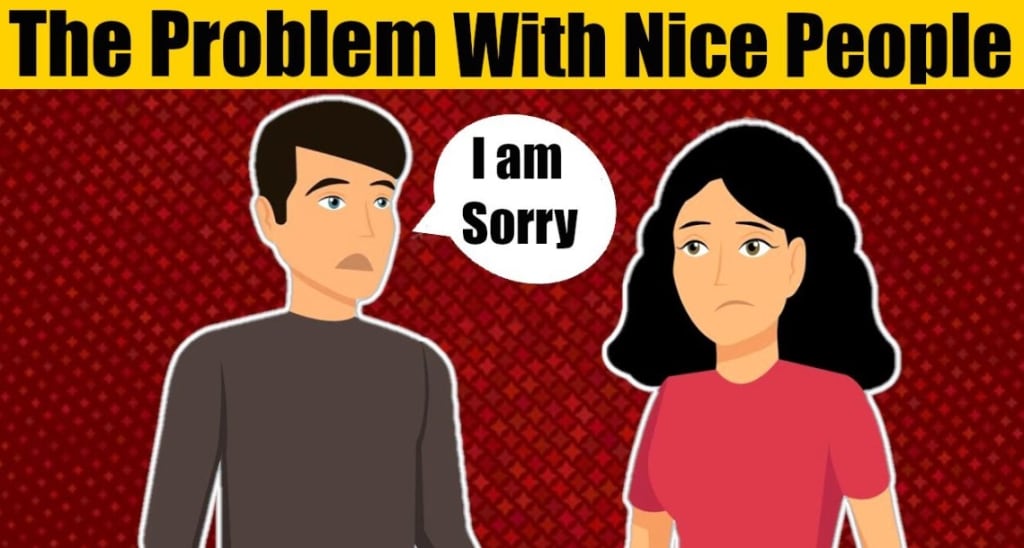
It was only the second time that Fred had spent time with his new friend Aubry beyond the classroom. As such, Aubry was Fred's first true friend and the first person with whom he had to put everything he had learned about being a good person and interacting with others on the line. After riding their bikes around the driveway, the two had just entered the house. As they rushed from the door to the couch in the living room, Aubry exclaimed, "Do you want to watch Star Trek? Do you like that show?" Fred said, "Yeah, it's my favorite; it's so good, do you? Yeah, let's watch it." Fred acknowledged that he had seen the program before but didn't like it. However, he wanted to be kind, which he understood meant putting other people's needs and wants ahead of your own and avoiding upsetting people. As a result, he put Aubry first to prevent potential conflicts of interest and agreed to watch at least once nearly every time they hung out. After that, Aubry turned on Star Trek: Alternate Reality.
With the advent of more freedom, driver's licenses, and the pubescent lust for activity, Fred joined several small friend groups in high school several years later. For the first time, he had to coordinate plans and schedules between himself and others whenever he was requested to do something, whether to hang out or do so. By the time he graduated from high school, Fred had lost some of his friends because of his erratic behavior and intentionally but mysteriously severed ties with most of the rest. Throughout high school, he spent little time with himself, his hobbies, interests, schoolwork, and peace of mind. He frequently felt diminished and used significantly doing things others wanted or suggested.
A few years later, while still in college, Fred entered into his first committed long-term relationship with a woman named Tara. At first, the relationship was beautiful; they connected in a way that Fred had never known possible. Tara was attractive, kind, funny, and engaging, bringing out aspects that made him feel alive. However, as time went on, the relationship started to deteriorate. After three years, Fred no longer had the same affinity for her as he had initially since who they were when they first met had changed from who they were now.
The fact that there were no disagreements in their relationship was something that Fred took pleasure in. Therefore, he rarely mentioned things that concerned him, never called attention to any problems in their relationship, and generally avoided arguments. When they were catching up at a bar, Fred told one of his college friends, "I just don't really like how she treats me. She doesn't seem to comprehend who I am, where I'm coming from, or like what I want. I don't know. I used to believe she did or at least could, but I don't even know if she cares anymore. I don't know; maybe I want to make things work because I don't want to break her heart; on the other hand, I'm not sure whether she would be able to accept me. I'm not sure; we'll have to wait and see.
The breaking point came when he discovered that Tara had cheated on him, even though she claimed it was because she felt neglected and didn't feel like he still loved her. He told her he would try to understand and forgive her, but he felt like ending more than just a relationship. Fred stayed with Tara for over a year, trying to act like everything was fine but finding himself unavoidably growing farther away from her.
After college, Fred was on his own, navigating the early stages of his career. At 23, he accepted his first genuine job offer for a digital marketing coordinator position for a mid-sized e-commerce company. At work, Fred always wore a smile and happily complied with requests, even when they fell outside the purview of his duties. He also frequently offered to assist or pick up the slack whenever his manager needed it. Fred stayed at this job for the next couple of years despite it being well below his skill set, and upper management never really offered him a nearly equivalent opportunity or compensation. After three years, he finally had enough and quit, seemingly abruptly and without giving much of an explanation.
Fred was one of the nicest people you could ever meet; he always ensured that others' needs and preferences were met; he never wanted to upset anyone, and he was always willing to do whatever anyone else wanted. As a result, when he was 28 years old and found himself alone, with few friends, a short but complicated list of ex-girlfriends, and a strained, awkward relationship with his former coworkers and bosses, he was very perplexed. He first had little luck, but soon he met Amina, a highly unusual spontaneous, and outgoing woman unlike any he had ever encountered before.
It was very uncharacteristic of Fred to talk about his former friends, jobs, and even some of his ex-girlfriends while they were on their third date. It seems like everyone in this world is just selfish, that's one thing I've learned, and I feel like individuals have always taken advantage of me for my naivete. They sat at a picnic table in a park as the sunset. I have to say; if we're going to keep this going, possibly, I have to ask a thing. Okay, sure, yeah, about what, Fred responded. Are you the kind of guy so hung up on becoming nice that he never really thinks about other people? There was a brief pause between the two, with Amina having more to say.
Why do you ask? Confused by the seemingly paradoxical question, Fred said, "Did you ever tell anyone how you felt? Did you ever ask them not to do something? Did you explain what was wrong and try to help resolve it?" No offense intended, but you always just anticipated people to know how you felt and to treat you right because you were nice. I don't particularly appreciate arguing or being harsh or aggressive for no reason, particularly when people should already understand what's right. Another brief pause filled the space between them. Niceness is not always kind since kindness is not quietness, submissiveness, or self-surrender. I believe it's the willingness to confront and deal with others and issues honestly and fairly for everyone's benefit, even when it's difficult or uncomfortable for you; Fred responded, "Yeah, but how does anyone know of a problem if the problem is hidden from them and why would anyone want to solve it if it benefits them and the other person doesn't seem to care." Amina added Universal agreement is not necessarily a sign of genuine concern for others; rather, it suggests that you only care about what other people think of you and have no regard for how your actions may affect others. How is that anything but selfish? At least with honest people, you know where they stand and the issues. Their perspectives may not always be favorable, but at least they respect you enough to be honest with you. I didn't mean to come off too forward there; I'm doing my due diligence. Less time to be wasted at this age. You know, yeah, I know, I get it, Fred said with a giggle. So are you around this weekend? We should do something. The two stared at each other from opposite ends of the picnic table as if Amina was the antithesis of Fred's existence laid bare on the table before him. Fred stopped before responding to Amina, "Maybe we ought to accelerate things a little slower, actually,"
About the Creator
Ian Sankan
I am a writer with proven writing ability in various fields. I consider writing a passionate career and a platform through which I extend my intellectual ability.






Comments
There are no comments for this story
Be the first to respond and start the conversation.